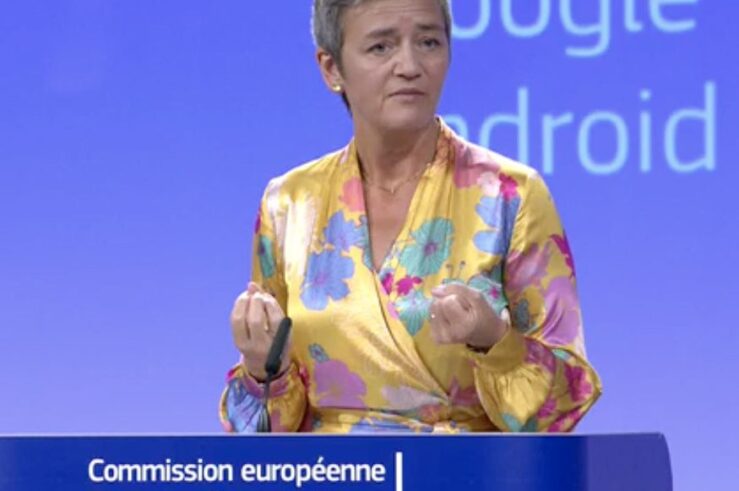Showing results for: “price gouging”
Lowering the Barriers to Entry to the Common Ownership Debate: A (Relatively) Non-Technical Explanation of MHHI Delta
One of the hottest topics in antitrust these days is institutional investors’ common ownership of the stock of competing firms. Large investment companies like BlackRock, Vanguard, State Street, and Fidelity offer index and actively managed mutual funds that are invested in thousands of companies. In many concentrated industries, these institutional investors are “intra-industry diversified,” meaning ... Lowering the Barriers to Entry to the Common Ownership Debate: A (Relatively) Non-Technical Explanation of MHHI Delta
E-cigarette taxation: Lessons from “sin taxes”
The Economist takes on “sin taxes” in a recent article, “‘Sin’ taxes—eg, on tobacco—are less efficient than they look.” The article has several lessons for policy makers eyeing taxes on e-cigarettes and other vapor products. Historically, taxes had the key purpose of raising revenues. The “best” taxes would be on goods with few substitutes (i.e., ... E-cigarette taxation: Lessons from “sin taxes”
The European Commission’s Google Android decision takes a mistaken, ahistorical view of the smartphone market
What to make of Wednesday’s decision by the European Commission alleging that Google has engaged in anticompetitive behavior? In this post, I contrast the European Commission’s (EC) approach to competition policy with US antitrust, briefly explore the history of smartphones and then discuss the ruling. Asked about the EC’s decision the day it was announced, ... The European Commission’s Google Android decision takes a mistaken, ahistorical view of the smartphone market
Will the European Commission’s Google Android Decision Benefit Consumers?
By Pinar Akman, Professor of Law, University of Leeds* The European Commission’s decision in Google Android cuts a fine line between punishing a company for its success and punishing a company for falling afoul of the rules of the game. Which side of the line it actually falls on cannot be fully understood until the ... Will the European Commission’s Google Android Decision Benefit Consumers?
The EU’s Google Android antitrust decision falls prey to the nirvana fallacy
Today the European Commission launched its latest salvo against Google, issuing a decision in its three-year antitrust investigation into the company’s agreements for distribution of the Android mobile operating system. The massive fine levied by the Commission will dominate the headlines, but the underlying legal theory and proposed remedies are just as notable — and ... The EU’s Google Android antitrust decision falls prey to the nirvana fallacy
Why the Commission’s Google Android decision harms competition and stifles innovation
Our story begins on the morning of January 9, 2007. Few people knew it at the time, but the world of wireless communications was about to change forever. Steve Jobs walked on stage wearing his usual turtleneck, and proceeded to reveal the iPhone. The rest, as they say, is history. The iPhone moved the wireless ... Why the Commission’s Google Android decision harms competition and stifles innovation
Correcting the Federalist Society Review’s Mischaracterization of How to Regulate
Ours is not an age of nuance. It’s an age of tribalism, of teams—“Yer either fer us or agin’ us!” Perhaps I should have been less surprised, then, when I read the unfavorable review of my book How to Regulate in, of all places, the Federalist Society Review. I had expected some positive feedback from ... Correcting the Federalist Society Review’s Mischaracterization of How to Regulate
A big year for business and economics in the courts, even if we’re not talking about Janus
This has been a big year for business in the courts. A U.S. district court approved the AT&T-Time Warner merger, the Supreme Court upheld Amex’s agreements with merchants, and a circuit court pushed back on the Federal Trade Commission’s vague and heavy handed policing of companies’ consumer data safeguards. These three decisions mark a new ... A big year for business and economics in the courts, even if we’re not talking about Janus
Dear Antitrusters: Bias Is Ubiquitous. Stick to the Merits.
A recent tweet by Lina Khan, discussing yesterday’s American Express decision, exemplifies an unfortunate trend in contemporary antitrust discourse. Khan wrote: The economists cited by the Second Circuit (whose opinion SCOTUS affirms) for the analysis of ‘two-sided’ [markets] all had financial links to the credit card sector, as we point out in FN 4 [link ... Dear Antitrusters: Bias Is Ubiquitous. Stick to the Merits.
Weekend reads: Big is bad edition
Big is bad, part 1: Kafka, Coase, and Brandeis walk into a bar … There’s a quip in a well-known textbook that Nobel laureate Ronald Coase said he’d grown weary of antitrust because when prices went up, the judges said it was monopoly; when the prices went down, they said it was predatory pricing; and ... Weekend reads: Big is bad edition
AT&T-Time Warner merger approved
AT&T’s merger with Time Warner has lead to one of the most important, but least interesting, antitrust trials in recent history. The merger itself is somewhat unimportant to consumers. It’s about a close to a “pure” vertical merger as we can get in today’s world and would not lead to a measurable increase in prices ... AT&T-Time Warner merger approved
Canadian Site Blocking Proposal Is a Good Experiment in Controlling Piracy
In an ideal world, it would not be necessary to block websites in order to combat piracy. But we do not live in an ideal world. We live in a world in which enormous amounts of content—from books and software to movies and music—is being distributed illegally. As a result, content creators and owners are ... Canadian Site Blocking Proposal Is a Good Experiment in Controlling Piracy






